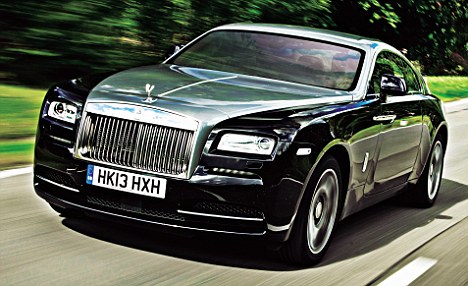London stocks on the FTSE 100 fell in early trade on Thursday, taking their cue from a downbeat session on Wall Street after Donald Trump announced a new 25% tariff on all imported cars and car parts.

At 0830 GMT, the FTSE 100 was down 0.6% at 8,635.01.
Speaking at the White House on Wednesday, Trump said: “Frankly, friend has been oftentimes much worse than foe. And what we’re going to be doing is a 25% tariff on all cars that are not made in the United States.
“If they’re made in the United States, it’s absolutely no tariff.”
Trump also warned the European Union and Canada not to work together “to do economic harm to the US”, threatening them with “large-scale tariffs, far larger than currently planned”.
On his Truth Social platform, the US President said such tariffs “will be placed on them both in order to protect the best friend that each of those two countries has ever had”.
In equity markets, M&G, Schroders, Segro, Taylor Wimpey, Melrose Industries, Aberdeen and OSB Group all fell as they traded without entitlement to the dividend.
Luxury car maker Aston Martin was under the cosh on news of Trump’s latest tariffs.
AJ Bell lost ground after saying it has agreed to sell its Platinum SIPP and SSAS business – AJ Bell Platinum – to InvestAcc for up to £25m.
On the upside, Next surged to the top of the FTSE 100 as the retail giant boosted its sales outlook following a strong start to the year, but warned that consumer confidence was set to deteriorate as the year progressed.
The fashion and home retailer said full-price sales in the first eight weeks of the year had been ahead of expectations.
As a result, it has hiked its first-half forecast to 6.5%, having previously guided for sales growth of 3.5%.
However, the retailer – which is known for its cautious outlook – did not upgrade its second-half guidance. Instead it was kept at 3.5%, with Next citing strong comparatives and potentially weakening conditions.
Chris Beauchamp, chief market analyst at IG, said: “In uncertain times, you can usually rely on Next to deliver good news. The retail giant duly came up with the goods, engaging in the traditional upgrade to its profit forecast for the year and providing a very healthy 10% rise in pre-tax profit.
“Its growth in new platforms outside the UK and expansion into new products provides investors with hope that this steady performer can continue to deliver in a similar vein.”
Marks & Spencer and Primark owner AB Foods also gained.
Top 10 FTSE 100 Risers
| Sponsored by Plus500 |
|
| # | Name | Change Pct | Change | Cur Price | |
|---|---|---|---|---|---|
| 1 |  |
Next Plc | +5.45% | +544.00 | 10,530.00 |
| 2 | 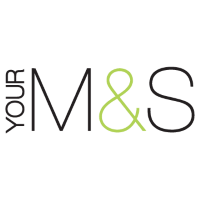 |
Marks And Spencer Group Plc | +3.03% | +10.20 | 346.90 |
| 3 | 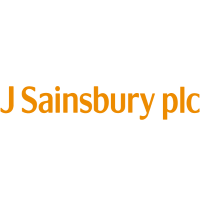 |
Sainsbury (j) Plc | +0.59% | +1.40 | 238.00 |
| 4 | 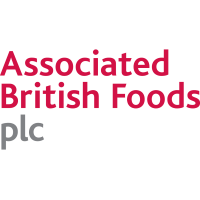 |
Associated British Foods Plc | +0.50% | +9.50 | 1,917.50 |
| 5 |  |
Beazley Plc | +0.45% | +4.00 | 902.50 |
| 6 | 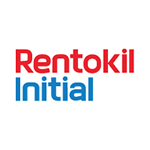 |
Rentokil Initial Plc | +0.40% | +1.40 | 355.20 |
| 7 |  |
Compass Group Plc | +0.32% | +8.00 | 2,504.00 |
| 8 |  |
Haleon | +0.31% | +1.20 | 383.30 |
| 9 |  |
Coca-cola Europacific Partners Plc | +0.30% | +20.00 | 6,580.00 |
| 10 |  |
Airtel Africa Plc | +0.30% | +0.50 | 165.60 |
Top 10 FTSE 100 Fallers
| Sponsored by Plus500 |
|
| # | Name | Change Pct | Change | Cur Price | |
|---|---|---|---|---|---|
| 1 |  |
Aib Group Plc | -5.23% | -27.50 | 498.50 |
| 2 |  |
Schroders Plc | -4.75% | -17.80 | 356.80 |
| 3 |  |
Segro Plc | -2.90% | -20.40 | 682.60 |
| 4 |  |
Smith & Nephew Plc | -2.23% | -24.50 | 1,075.50 |
| 5 | 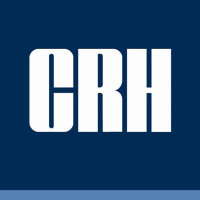 |
Crh Plc | -2.22% | -166.00 | 7,308.00 |
| 6 |  |
Melrose Industries Plc | -2.16% | -11.40 | 515.60 |
| 7 |  |
Barclays | -2.10% | -6.50 | 302.75 |
| 8 |  |
Standard Chartered Plc | -2.06% | -24.50 | 1,162.50 |
| 9 |  |
British American Tobacco Plc | -1.94% | -61.00 | 3,090.00 |
| 10 |  |
Antofagasta Plc | -1.88% | -35.50 | 1,854.50 |
US close: Stocks manage small gains on Ukraine-Russia deal
Wall Street closed slightly higher on Tuesday, extending gains from the prior session amid reports of a partial ceasefire agreement between Ukraine and Russia.
The deal, which covers energy infrastructure and the Black Sea, did not seem to significantly sway investor sentiment as market participants continued to look for clarity on the size and shape of president Donald Trump’s next round of tariffs.
At the close, the Dow Jones Industrial Average was up 0.01% to 42,587.50, while the S&P 500 gained 0.16% to 5,776.65.
The Nasdaq Composite outperformed, rising 0.46% to 18,271.86, supported by strength in technology shares.
“US stocks squeezed out modest gains on Tuesday, brushing off weaker consumer confidence data as traders held their breath ahead of what’s shaping up to be a high-stakes tariff showdown on 2 April,” said SPI Asset Management managing partner Stephen Innes.
“The S&P 500 edged up 0.2%, powered once again by mega-cap tech, though beneath the surface, thin volumes and lousy breadth signalled that investor conviction remains paper-thin.
“The drop in consumer confidence wasn’t exactly a curveball – Americans are already bracing for higher prices from tariffs, which means increased cost-of-living stress, weaker demand for domestic goods, and eventually a hit to jobs. It’s economics 101.”
Consumer confidence falls sharply in March
In economic news, the Conference Board’s consumer confidence index fell sharply in March, dropping 7.2 points to 92.9.
Notably, the gauge of consumer expectations fell to its lowest level in 12 years, underscoring a decline in sentiment about future economic conditions.
Manufacturing activity also showed signs of strain.
The Richmond Federal Reserve’s regional factory index dropped to -4 in March from 6.0 the previous month, well below the consensus forecast of 8.0.
A negative reading indicates contraction in the region’s manufacturing sector.
Adding to the cautious tone, HSBC downgraded its view on US equities by two notches, citing persistent policy uncertainty.
Analysts at the bank said they saw little chance of clarity emerging after 2 April, when the Trump administration’s reciprocal tariffs are scheduled to take effect.
According to HSBC, extended uncertainty could begin to weigh more visibly on both leading indicators and concrete economic data.
Disney, Apple in the green, Merck falls despite licensing deal news
In equities, Walt Disney shares rose 1.43% after the company confirmed the results of its 20 March annual shareholder meeting.
All board members were re-elected, though Mary T Barra received the most opposition among candidates.
Shareholders ratified the appointment of PwC as auditors for 2025 and approved an advisory vote on executive compensation.
Three shareholder proposals – related to climate risk reporting, inclusion in the Corporate Equality Index, and ad buyer risk disclosures – were all defeated, with the climate-related measure receiving the strongest support.
Elsewhere, Apple gained 1.37% after announcing dates for its upcoming Worldwide Developers Conference.
The event, scheduled for 9-13 June and primarily online, would showcase updates to its operating systems across devices, including iPhones and iPads.
On the downside, Merck fell 4.81% following news of a new licensing deal with Jiangsu Hengrui Pharmaceuticals.
The agreement gives Merck exclusive rights to develop HRS-5346, a phase 2 cardiovascular drug candidate.
Citi maintained a ‘buy’ rating and a $115 price target, but the announcement weighed on investor sentiment.
Retail giant Walmart declined 3.12% as investors remained cautious ahead of the 2 April implementation of new tariffs under president Trump.
Uncertainty over the scope and impact of the measures pressured shares of the retail giant.
Thursday newspaper round-up: Retailers, Trump tariffs, tax rises
Major investors including Axa and Scottish Widows are backing shareholder resolutions pressing retailers Next, Marks & Spencer and JD Sports to increase pay for thousands of workers. More than 100 individuals and eight institutional investors, which manage over £1tn in assets, are backing an effort to encourage companies to pay a “real living wage”, which is designed to ensure workers can cover necessary household costs. – Guardian
Donald Trump announced plans to impose sweeping 25% tariffs on cars from overseas on Wednesday, days before the US president is expected to announce wide-ranging levies on other goods from around the world. “What we’re going to be doing is a 25% tariff for all cars that are not made in the United States,” Trump said in the Oval Office. “We start off with a 2.5% base, which is what we’re at, and go to 25%.” – Guardian
Britain’s warehouse owners must be on standby to house weaponry for Western military, the chief executive of a major landlord has said. Andrew Coombs heads up Sirius Real Estate and served in the Territorial Army (TA) during the Cold War. He said his company is factoring military storage into all its investment decisions in the face of Russian aggression, which has triggered a surge in defence spending across the UK and EU. – Telegraph
Labour’s tax rises and workers’ rights bill have left the UK’s bosses “pretty p—-d off”, the head of Britain’s biggest business group has said. Rupert Soames, the chairman of the Confederation of British Industry (CBI), said bosses were becoming “irritated” with the Government, adding that dealing with the consequences of Angela Rayner’s workers’ rights bill would be “very difficult”. – Telegraph
UK government debt and stocks rallied on Wednesday after the chancellor was warned of a near-£600 billion debt interest bill over the next five years amid hundreds of billions of pounds of new borrowing. Yields on the UK’s benchmark ten-year bond edged down after the Debt Management Office (DMO), the organisation tasked with selling government debt, said it would issue fewer bonds than investors had envisioned. – The Times


 Hot Features
Hot Features




